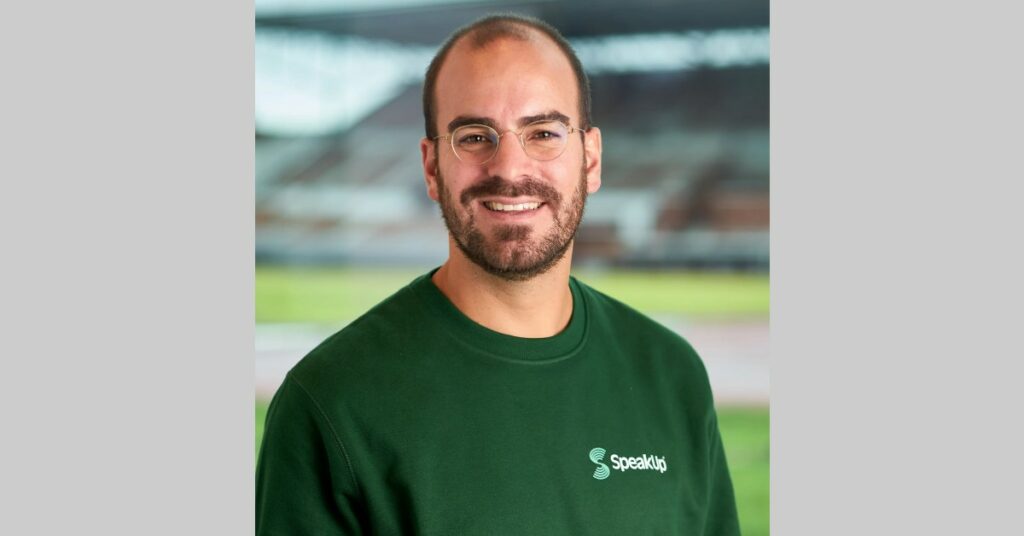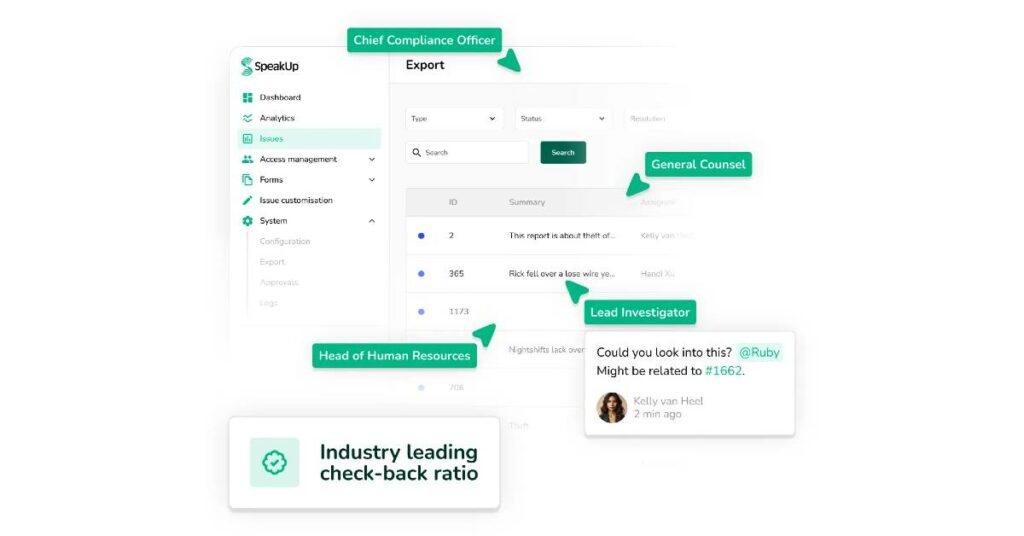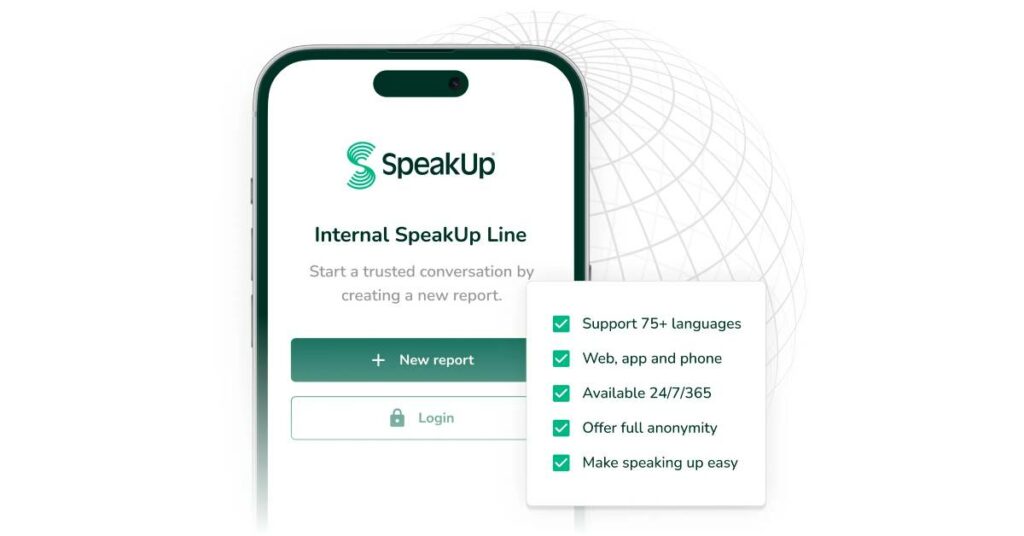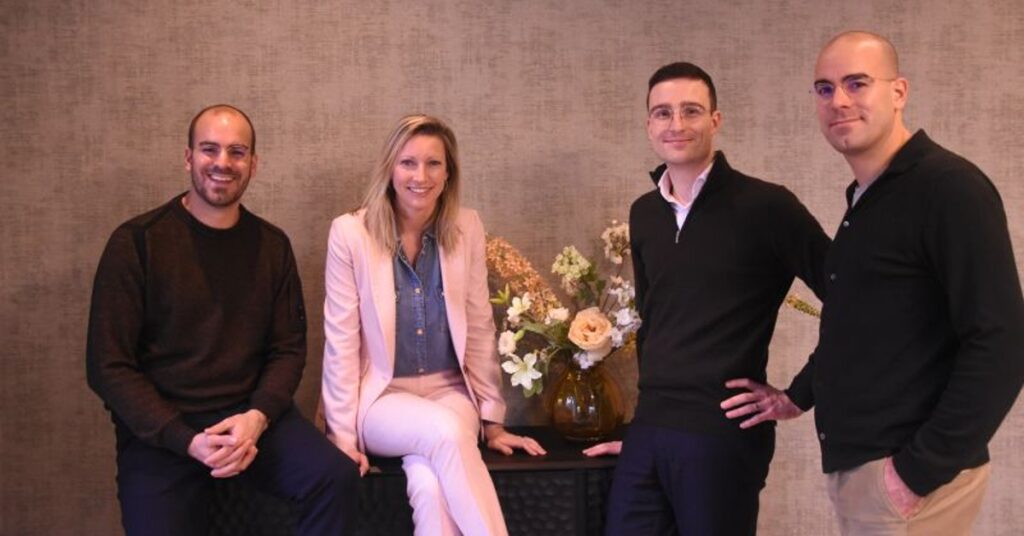In 2018, the UK’s Financial Conduct Authority (FCA) fined former Barclays CEO Jes Staley £642,430 (around €750,000) for his attempt to unmask a whistleblower.
The regulators also ordered the bank to report how it handles whistleblowing annually. In the wake of the #MeToo movement, whistleblowing has not only become a common parlance but an industry has developed around it.
While it is common to see law firms advising companies on setting up whistleblower services, one Dutch startup envisions a complete reversal of whistleblower services.
Through its whistleblowing and case management platform, Amsterdam-based SpeakUp, our startup of the month, wants to make it safer for all employees to speak up and it aims to do it by shifting the industry away from compliance culture.
Speaking up is difficult

Maurice Canisius, CEO of SpeakUp, says the idea of his startup stemmed from the fact that speaking up is difficult.
He says speaking up is difficult in general and even more difficult in a work environment.
To transform this difficult nature of speaking up, Canisius says there is a need for businesses to shift from a compliance culture to a speak-up culture.
“We believe that the topic of whistleblowing needs a modern approach,” he says, before adding that, “whistleblowing has a negative connotation and we want to talk about speaking up instead.”
Canisius adds that there is a need for a strong communication mechanism and an anonymous channel to speak up.
As a platform, SpeakUp provides organisations with a state of the art technology that people can use to speak up and communicate with their company in an anonymous and secure environment.
While some may call it a whistleblower management platform, SpeakUp distinguishes itself as a communication mechanism but the real trick is its ability to enable communication for employees in their native language.
SpeakUp has built translation software within its software suite that supports 75 languages.
“I think it’s super important that the conversation starts in your native language,” Canisius explains.
Putting people in touch

Canisius does not talk about his startup as a product or software startup but more like its a movement, the one that can be called a speak-up culture movement.
The idea of speaking up and helping speak up is so high on the radar of this Dutch startup that they rebranded from PeopleInTouch to SpeakUp.
One thing is clear, the team behind SpeakUp understands very well that the concept of whistleblowing is very sensitive.
As a result, Canisius says their mission is to prevent a person from becoming a whistleblower.
He adds that SpeakUp is designed in such a way that people are empowered to speak up internally, have a conversation about sensitive topics, and see tangible changes from business leaders.
Canisius cites the example of Snowden and says the lack of an infrastructure or ways to speak up forced him to speak to the media first.
With SpeakUp, Canisius wants to have a more preventative way towards whistleblowing and helping businesses build trusted relationships with their employees so that “that there is an environment and culture where people feel free to speak up.”
From questionnaires to chat

Both Canisius and whistleblowers don’t like traditional whistleblowing systems, which either involve a call centre or a long-form online questionnaire.
The problem with online questionnaires, Canisius explains, is they ask the whistleblower to give concrete examples of monetary damage caused by the potential misconduct being reported.
This questioning discourages whistleblowers and SpeakUp, the Dutch startup is bringing conversational reporting to the industry.
The startup begins by ensuring there is a strong communication strategy in place, allowing any employee to report any unethical behaviour or misconduct happening in their organisation.
To report, they can use a mobile app, a local telephone number, or the web.
The ingenuity of this implementation is that reporting misconduct works similarly to sending voice messages on WhatsApp, thanks to natural language support.
Once an employee leaves a message, the message is read by the compliance, legal, or HR departments and they can respond instantly.
While the sender remains anonymous to these departments, the person responding to these complaints is not.
This, Canisius says, allows the sender to decide how to respond. The company representative is also empowered to ask for more details including asking for photographic proof or supporting documents before acting on the misconduct being reported.
AI and internationalisation

At the time of writing, SpeakUp is being used by over 2,000 companies across 60 countries, which reaches over 10 million employees every day.
Canisius says over 100 million voice messages are being sent each month on the platform in more than 75 languages.
While most of its customer base is in Europe, SpeakUp has begun adding customers in markets like India. This expanding customer base demands more AI implementation and Canisius plans to do it within the legal limits.
He adds that embracing AI within the legal limit is super important as it offers an opportunity to bring efficiency to compliance, legal, and HR teams.
“We are also experimenting with a fully AI bot that can have actual interactions with people,” he says, before clarifying that, “it is only a proof of concept for now.”
Alongside this focus on ethical AI, Canisius sees a huge opportunity for the company globally, especially in the DACH region and the UK.
He says, “We do investments there, we are going to strengthen the marketing and sales operation.”
As a subscription-based platform built on a tiered model that fits companies of every size, Canisius sees SpeakUp as a platform that can serve the whole market.
“We see that we are traditionally strong amongst the larger companies and with the whistleblower directive, we have a huge client base buildup on also smaller organisations,” he adds.
With so much focus on AI and internationalisation, it is natural to expect SpeakUp to raise funding but Canisius still considers the funding from Fortino Capital in January 2023 as fresh funding.
“No plan to do a second round,” he quips, while reiterating their focus to open new offices in Germany and the UK.
He also explains that they added 50 per cent of their staff in 2023 and this year too will see the Dutch startup expand its team ‘heavily.’
Startups are meant to disrupt traditional industries but whistleblowing is a space that is both unique and imbibed with sensitivity.
For Canisius, SpeakUp’s real USP is how it handles that sensitivity and their focus on removing the negative connotation associated with whistleblowing.
As organisations relook their whistleblowing platforms, SpeakUp seems uniquely positioned to gain but its success depends on how it scales its business and uses AI for good.
Read the orginal article: https://siliconcanals.com/news/startups/speakup-amsterdam-maurice-canisius-whistleblowing-software/


